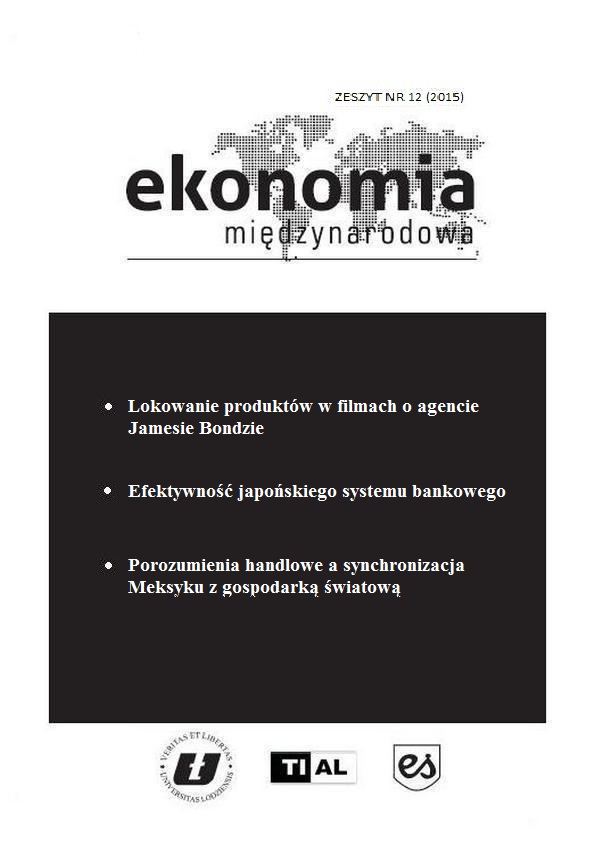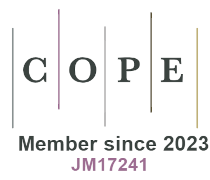Product placement as a way of promoting on an international scale based on a series of films about James Bond
DOI:
https://doi.org/10.18778/2082-4440.12.02Słowa kluczowe:
product placement, history of product placement, kinds of product placement, James BondAbstrakt
This article presents the characteristics of product placement as global promotion. The reader may refer to the types of product placement, its regulatory framework and its short genesis and evolution. The paper presents the results of a survey conducted on a group of 123 respondents. The survey results indicate that product placement in James Bond films is noticeable by more than 90% of respondents. The respondents have positive opinions on the use of product placement to promote the products. This may encourage potential investors to make more use of film as a medium of product placement.
Bibliografia
Anders J. (2011), 11 Things You Probably Didn’t Know About James Bond, http:// io9.com/5958754/11-things-you-probably-didnt-know-about-james-bond
Google Scholar
Choliński A. (2013), Product placement. Planowanie, kreacja i pomiar skuteczności, ed. Wolters Kluwer Polska, Warszawa.
Google Scholar
Conlon F. (2013), Skyfall Takes Product Placement to Next Level with Heineken, www.thewrap.com/movies/blog-post/skyfall-takes-product-placement-nextlevel- heineken-63786/
Google Scholar
Czarnecki A. (2003), Product placement. Niekonwecjonalny sposób promocji, PWE, Warszawa.
Google Scholar
Directive 2007/65/WE (2007), European Parliament and of the Council of 11 December 2007, Section 61.
Google Scholar
Dobska M. (1998), James Bond sprzedawca, „Businessman Magazine”, 7/1998.
Google Scholar
Drozdowska P. (2013), Fikcja to za mało! Fenomen Jamesa Bonda, www.e-splot. pl/?pid=articles&id=2501
Google Scholar
Felix S. (2012), The Evolution Of James Bond Movie Product Placement, www. businessinsider.com/heres-how-james-bonds-relationship-with-productplacement- has-changed-2012-10?op=1
Google Scholar
Former T. (2013), The Skyfall’s the limit on James Bond marketing, www.theguardian. com/film/filmblog/2012/oct/23/skyfall-marketing-james-bond
Google Scholar
Gębarowski M. (2007), Nowoczesne formy promocji, Oficyna Wydawnicza Politechniki Rzeszowskiej, Rzeszów.
Google Scholar
Grzesiek M. (2010), James Bond. Szpieg, którego kochamy, Bukowy Las, Warszawa.
Google Scholar
Kwapisz K. (2012), Czym jest product placement?, Wydawnictwo Dom Prasowy, Warszawa.
Google Scholar
Lalik E. (2012), Bond i produkty Sony, www.spidersweb.pl/2012/10/czy-productplacement- dziala-bond-produkty-sony-razem-na-lata.html
Google Scholar
Mas J.S. (2010), Hollywood i marki. Product placement w kinie amerykańskim, Wydawnictwo SWPS Academica, Warszawa.
Google Scholar
Niczewski R., Potrzebowski J. (2011), Product placement jako skuteczne narzędzie komunikacji marketingowej, Agora, Warszawa.
Google Scholar
Nitins T. (2011), Selling James Bond: product placement in the James Bond films, Cambridge Scholars Publishing, United Kingdom.
Google Scholar
Ortega E. (1997), La comunicación publicitaria, Ediciones Pirámide, Madrid.
Google Scholar
Pazio N.M. (2007), Podstawy Marketingu, Oficyna Wydawnicza Politechniki Warszawskiej, Warszawa.
Google Scholar
Radford B. (2012), Branding James Bond: Do Product-Placement Ads Work?, www.livescience.com/24957-james-bond-product-placement.html
Google Scholar
Sancton J. (2012), For Your Ads Only: 50 Years of James Bond Product Placement, www.businessweek.com/articles/2012-04-05/for-your-ads-only-50-years-ofjames- bond-product-placement
Google Scholar
Segrve K. (2004), Product Placement in movies, McFarland & Company Publishers, Jefferson.
Google Scholar
Sobocińska M. (2002), Product placement – instrument budowania marki, Wydawnictwo Akademii Ekonomicznej we Wrocławiu, Wrocław.
Google Scholar
Wyrwisz J. (2011), Product placement – korzyści i ograniczenia w komunikacji marketingowej produktów i usług, „Przegląd Organizacji”, nr 11.
Google Scholar
Pobrania
Opublikowane
Jak cytować
Numer
Dział
Licencja

Utwór dostępny jest na licencji Creative Commons Uznanie autorstwa – Użycie niekomercyjne – Bez utworów zależnych 4.0 Międzynarodowe.









